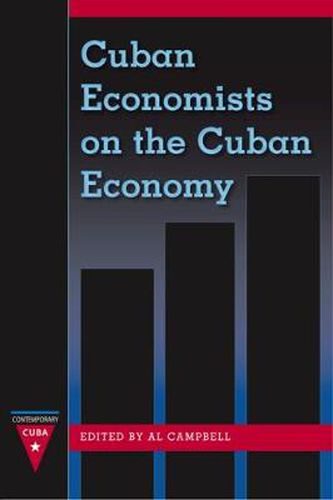Readings Newsletter
Become a Readings Member to make your shopping experience even easier.
Sign in or sign up for free!
You’re not far away from qualifying for FREE standard shipping within Australia
You’ve qualified for FREE standard shipping within Australia
The cart is loading…






Most scholarship on the Cuban economy looks at the island nation from the outside in. Cuban Economists on the Cuban Economy is the first collection to bring together some of the island’s leading economists to discuss the good and the bad about their own economy. These thirteen voices–seldom published together in English–offer clear and straightforward analyses of how Cuban society provides for its needs, distributes surplus, and assesses its shortcomings.
Focusing on changes in policy during the Special Period, the years following the collapse of the Soviet Union, this volume tracks various shifts, both major and minor, in the island’s planned economy as leaders adapted to changing global relations while developing independent sources of income. These essays offer invaluable and sober assessments of Cuba’s entrance into the international economy through such sectors as tourism, knowledge-based goods and services, and agriculture.
Cuban Economists on the Cuban Economy was written, in part, to reveal the rigorous research conducted within the country and to clarify the different factors that Cubans emphasise in examining their place on the world economic stage. It also provides unique insights into the island’s fight against poverty, its aging population, and its trade unions. This book will be an invaluable resource for years to come.
$9.00 standard shipping within Australia
FREE standard shipping within Australia for orders over $100.00
Express & International shipping calculated at checkout
Most scholarship on the Cuban economy looks at the island nation from the outside in. Cuban Economists on the Cuban Economy is the first collection to bring together some of the island’s leading economists to discuss the good and the bad about their own economy. These thirteen voices–seldom published together in English–offer clear and straightforward analyses of how Cuban society provides for its needs, distributes surplus, and assesses its shortcomings.
Focusing on changes in policy during the Special Period, the years following the collapse of the Soviet Union, this volume tracks various shifts, both major and minor, in the island’s planned economy as leaders adapted to changing global relations while developing independent sources of income. These essays offer invaluable and sober assessments of Cuba’s entrance into the international economy through such sectors as tourism, knowledge-based goods and services, and agriculture.
Cuban Economists on the Cuban Economy was written, in part, to reveal the rigorous research conducted within the country and to clarify the different factors that Cubans emphasise in examining their place on the world economic stage. It also provides unique insights into the island’s fight against poverty, its aging population, and its trade unions. This book will be an invaluable resource for years to come.